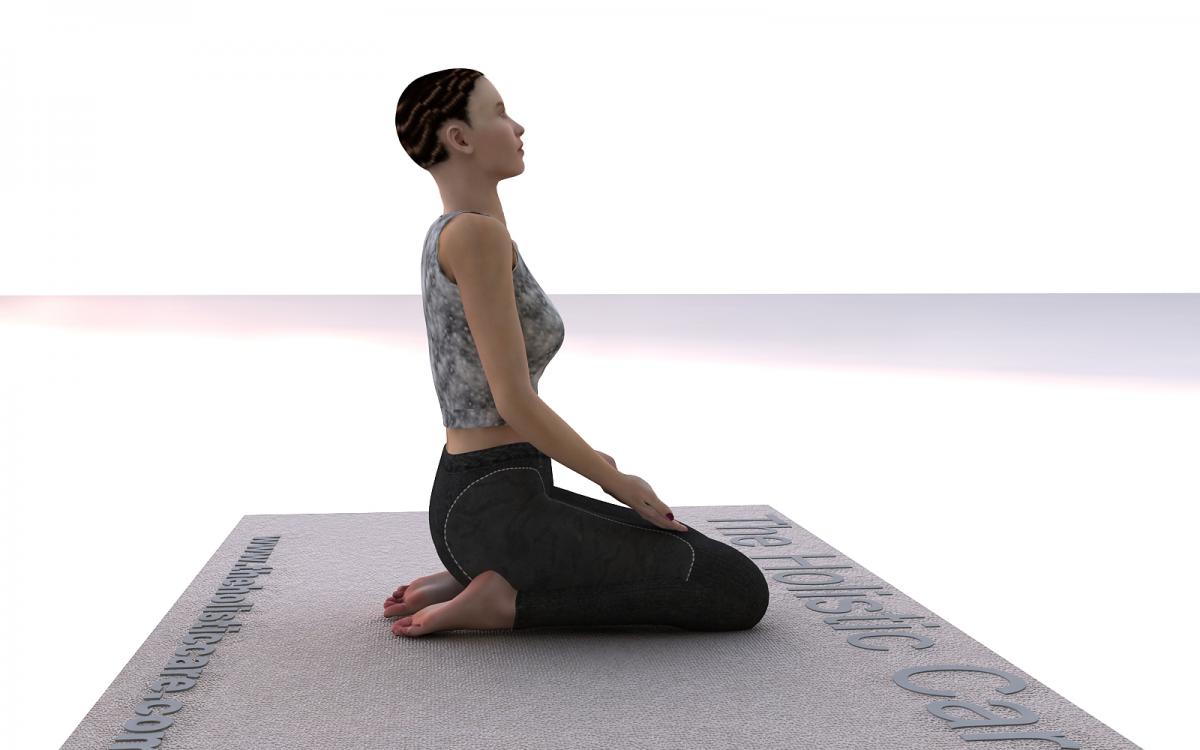In Vajrasana, the body adopts a rigid, diamond-like posture, making it a foundational pose for various yoga asanas and meditation practices.

Position of Readiness:
- Initial Sitting Position:
- Sit with legs extended together and hands resting beside the body.
- Palms should be flat on the ground, fingers pointing forward.
Steps to Practice Vajrasana:
- Bend Legs:
- Bend the right leg at the knee and place the foot under the right hip, with the sole facing inward.
- Repeat the same with the left leg, positioning it under the left buttock.
- Sit on the bent feet, ensuring heels are not under the body but slightly apart with toes pointing inward.
- Posture Alignment:
- Keep hands resting on the respective thighs.
- Straighten your spine and gaze forward, closing your eyes gently.
- Maintain gentle breathing through the nostrils and hold this position for at least three minutes.
- Returning to Original Position:
- To return to the original position, lean slightly to the right side.
- Extend your left leg and then the right leg, returning to the initial sitting position.
Benefits of Vajrasana:
- Versatile Posture:
- Ideal for meditation, resting between other seated poses, and aiding digestion.
- Muscle Strengthening:
- Strengthens thigh muscles and calf muscles, improving overall leg strength.
Note:
- The duration of holding Vajrasana can vary based on comfort and practice goals.
- Individuals with piles should avoid practicing this asana.
Vajrasana offers a stable and grounded posture, enhancing meditation practices and providing a beneficial stretch and strengthening effect for the lower body.
Consult a yoga instructor or healthcare professional before attempting any new yoga practice, especially if you have existing health conditions or concerns.